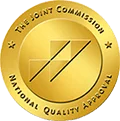Sometimes, pain and distress do not end with the person who experienced them. Families can carry the effects of difficult or traumatic events for years, even if later generations did not witness or experience the original event themselves.
Intergenerational trauma is a topic that researchers, mental health professionals, and communities have been studying for decades. This subject helps explain why certain patterns of emotion, behavior, or health can continue in families over time. At Arkview, we understand how trauma and substance use can affect families for generations and offer comprehensive treatment that addresses both mental health and addiction together.
Understanding what intergenerational trauma means is an important starting point for anyone curious about the long-lasting effects of trauma within families or communities.
What is intergenerational trauma?
Intergenerational trauma, also called generational trauma or transgenerational trauma, happens when the effects of a traumatic experience pass from one generation to the next. The word “intergenerational” means that trauma can affect people who did not directly experience the original event, and trauma therapy often plays an important role in understanding and addressing these patterns.
This type of trauma transfers through family behaviors, beliefs, parenting styles, and even biological changes. For example, if a parent becomes anxious or fearful because of past trauma, their children may learn these same responses. The way parents talk about the past or interact with their children often reflects unresolved trauma from previous generations.
Researchers first recognized intergenerational trauma in the 1960s when studying children of Holocaust survivors. Today, the intergenerational trauma definition includes the ongoing emotional, psychological, or physical effects of trauma that pass through families or communities. This can include responses to historical events like war or displacement, as well as personal family traumas.
How intergenerational trauma develops
Intergenerational trauma develops through both biological and psychological processes that affect how families function and respond to stress.
Epigenetic changes
Epigenetics is the study of how life experiences can affect gene expression without changing DNA itself. When someone experiences trauma, their body may change how certain genes work. These changes can sometimes be passed on to the next generation through what scientists call epigenetic inheritance.
Children of trauma survivors may have stress hormones that activate more easily. Their bodies might be more sensitive to danger or threat, even in safe situations. Research shows that these biological changes can affect how people respond to stress for years after the original trauma occurred.
Family patterns and learned behaviors
Family environment plays a major role in how trauma passes between generations. Parents who experienced trauma may struggle with anxiety, depression, or difficulty trusting others. These responses often influence how they raise their children.
Common patterns include:
– Overprotective parenting: Parents may become overly cautious to prevent their children from experiencing similar harm
– Emotional avoidance: Families may avoid talking about feelings or difficult topics
– Hypervigilance: Always being on guard for potential threats or danger
– Communication problems: Difficulty expressing emotions or needs clearly
Children learn these patterns and may repeat them with their own families, continuing the cycle of intergenerational trauma.
Signs of intergenerational trauma
Recognizing intergenerational trauma can help families understand patterns that may have continued for years without explanation.
Emotional and behavioral patterns
Families affected by intergenerational trauma often show similar emotional responses across generations. Anxiety patterns are common, where worry or fear seems to run in the family. Many families experience relationship difficulties, such as trouble trusting others or forming close bonds.
Strong stress responses are another sign. People may overreact to everyday stressors or feel unsafe even when there is no real threat. These responses often feel automatic and difficult to control.
Examples of intergenerational trauma
Historical trauma affects entire communities and can be passed down through many generations. Some examples include:
- Indigenous communities: Forced relocation, loss of culture, and boarding school experiences
- African American families: Effects of slavery, segregation, and ongoing racism
- Jewish families: Holocaust survivors and their descendants
- Immigrant families: War, displacement, and adaptation to new countries
- Military families: Combat trauma and its effects on spouses and children
These are all intergenerational trauma examples that show how major events can affect families long after they occur.
Impact on mental health and substance use
Intergenerational trauma increases the risk of mental health problems and substance use disorders. People from families with trauma history are more likely to experience anxiety, depression, and post-traumatic stress disorder (PTSD).
Some people use drugs or alcohol to cope with difficult emotions or memories related to family trauma. This creates additional problems and can lead to what doctors call a dual diagnosis – having both a mental health disorder and a substance use disorder at the same time.
Research shows that trauma affects both the mind and body. People may experience physical health problems, sleep difficulties, and relationship difficulties. The stress of carrying family trauma can impact every area of life.
Research on generational trauma
Many people wonder, “Is generational trauma real?” Scientific research confirms that trauma effects can pass between generations through multiple pathways.
Studies show that children of trauma survivors have higher rates of anxiety and depression compared to children whose parents did not experience trauma. Brain imaging reveals that trauma can change how certain brain areas function, affecting memory, emotion regulation, and stress response.
The field of epigenetics has provided evidence that traumatic experiences can alter gene expression, affecting future generations. While more research continues, current evidence supports the reality of intergenerational trauma transmission.
Breaking the cycle of trauma
Healing from intergenerational trauma is possible with the right support and understanding. The process involves recognizing patterns, learning new coping skills, and, at times, working with mental health professionals.
Evidence-based therapies can help interrupt trauma patterns. Cognitive Behavioral Therapy helps people identify and change thoughts and behaviors related to trauma. Eye Movement Desensitization and Reprocessing (EMDR) specifically targets trauma memories and responses.
Family therapy allows multiple generations to work together to change communication patterns and build healthier relationships. Individual therapy provides a safe space to process personal experiences and develop coping strategies.
Daily practices can help manage trauma symptoms and build resilience:
– Mindfulness and meditation: These practices help regulate emotions and reduce stress
– Physical exercise: Regular movement helps the body process stress hormones
– Healthy sleep habits: Good sleep supports emotional regulation and healing
– Social connections: Building relationships with supportive people provides emotional resources
Many communities have developed programs specifically for intergenerational trauma. These programs often combine traditional healing practices with modern therapy approaches. Connecting with cultural roots and community support can be an important part of recovery.

Challenges in healing
Breaking the cycle of intergenerational trauma faces several obstacles. Many trauma patterns operate unconsciously, meaning families repeat behaviors without realizing why. Some family members may resist talking about painful experiences or deny that trauma affects their family.
External factors like poverty, discrimination, or lack of access to mental health care can make healing more difficult. Limited resources mean not everyone can access therapy or support groups when they need them.
Change takes time, and families may experience setbacks during the healing process. Understanding these challenges helps set realistic expectations for recovery.

Frequently asked questions about intergenerational trauma
Yes, trauma effects can sometimes skip a generation, appearing in grandchildren even if parents show no obvious signs of trauma.
PTSD develops after a person directly experiences a traumatic event, while intergenerational trauma involves patterns passed down through families over time without direct exposure to the original trauma.
Medication can help manage symptoms like anxiety or depression related to intergenerational trauma, but therapy is typically needed to address the underlying patterns and causes.
Healing timelines vary greatly depending on individual and family factors, but recovery often takes months to years and involves ongoing work rather than a quick fix.
Start your journey to recovery now
If you or your family are struggling with patterns that might be related to intergenerational trauma, you are not alone. At Arkview, we understand how trauma and substance use can affect families across generations. Our team uses evidence-based, personalized care to help break these cycles and build healthier futures.
We believe in treating the whole person, not just symptoms. Our approach addresses both mental health and substance use disorders together, recognizing how they often connect to family trauma patterns. Take the first step toward healing by reaching out to Arkview today. Recovery is possible, and there is hope for your family’s future.






















